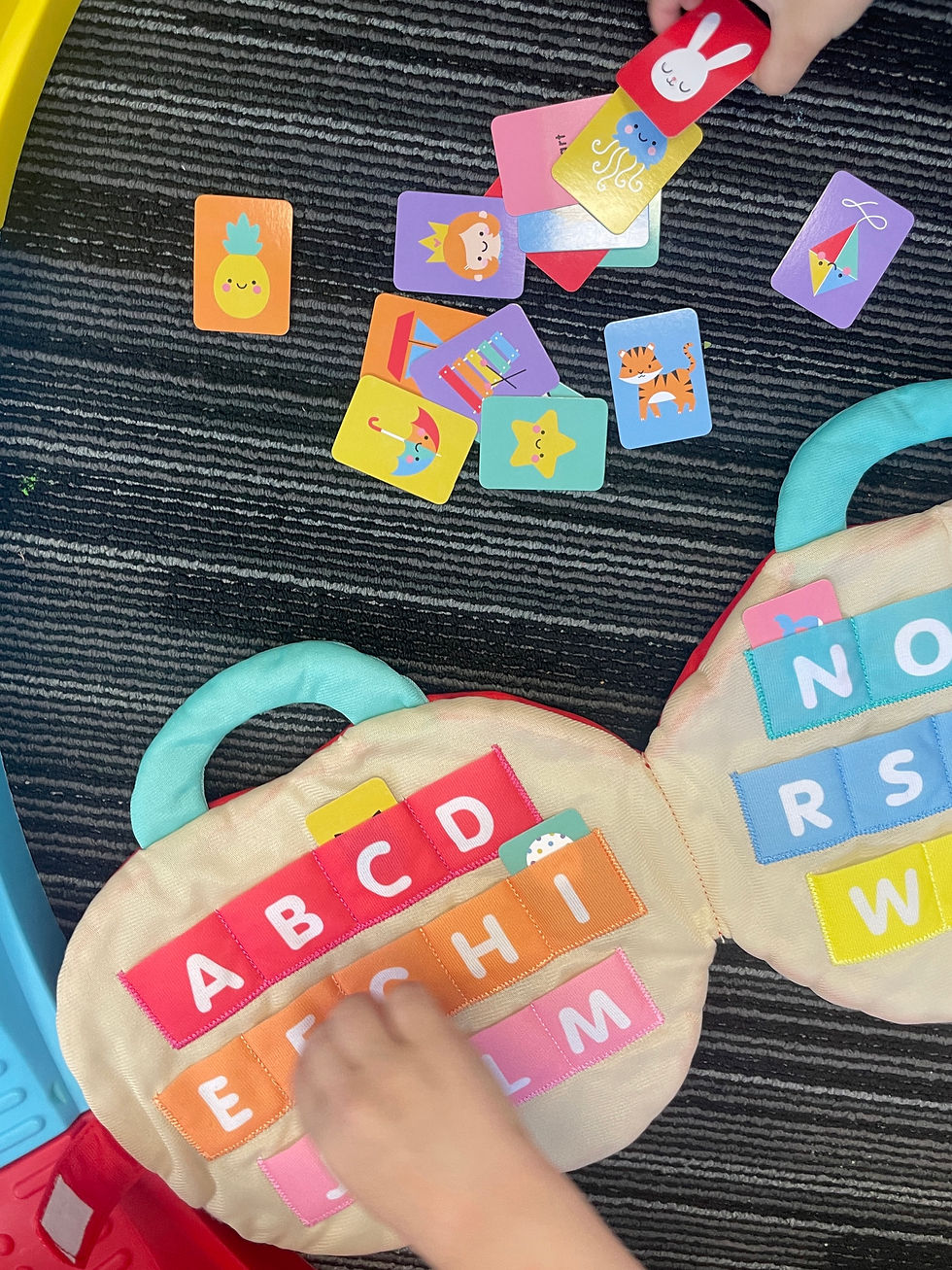🌈 Home Program Activities to Support Sensory Processing
- claire2876
- Jul 28, 2025
- 2 min read

Helping individuals feel calm, focused, and in control with OT-led strategies
Sensory processing is the brain’s ability to take in, interpret, and respond to sensory information from the world around us — sounds, textures, lights, smells, movement, and more. When this process is disrupted, it can lead to overstimulation, under-responsiveness, or sensory-seeking behaviours, impacting focus, behaviour, sleep, and emotional regulation.
Occupational therapists support clients by identifying individual sensory needs and developing tailored sensory diets — structured activities designed to help regulate and organise the nervous system. These home-based activities are crucial in helping children and adults maintain attention, improve function, and feel more comfortable in their bodies.
👶 Preschool Sensory Processing Activities
Preschoolers often explore the world through movement and touch. Sensory activities should be play-based and calming or alerting based on their needs.
Messy play: Use finger paint, shaving cream, kinetic sand, or cooked pasta for tactile input.
Movement songs: Try action songs like “Head, Shoulders, Knees and Toes” to engage the whole body.
Deep pressure games: Bear hugs, pillow squishes, or rolling a therapy ball over the body.
Oral sensory input: Offer crunchy snacks, chewy tubes, or blowing bubbles for calming input.
🧒 Primary School Sensory Processing Activities
Children in this stage may benefit from more structured sensory breaks to support school participation and regulation.
Sensory circuits: Set up a short routine of alerting (e.g., jumping), organising (e.g., balancing), and calming (e.g., deep breathing) activities.
Weighted tools: Use weighted lap pads or soft pressure vests during quiet time. It is inportant to note that these may need to be prescribed by an occupational therapist to ensure safety for the child.
Tactile trays: Hide objects in rice, beans, or foam for children to find with their hands.
Visual calm spaces: Create a tent or nook with soft lighting, fidget toys, and headphones for retreat and recovery.
👦👧 High School Sensory Processing Activities
Teens may become more aware of their sensory needs and benefit from tools to support self-regulation, focus, and confidence.
Fidget kits: Discreet kits with putty, stress balls, or textured items for classroom or home use.
Movement routines: Stretching, walking, or light exercise before or after demanding tasks.
Noise-reduction strategies: Use ear defenders, noise-cancelling headphones, or calming music.
Personal awareness tools: Teach teens to recognise signs of dysregulation and choose appropriate self-care strategies (e.g., take a break, breathe, stretch).
👨 Adults Sensory Processing Activities
Adults may have lifelong sensory needs or develop them after injury, trauma, or due to neurological conditions.
Body-based regulation: Try yoga, deep pressure massage, or proprioceptive activities like pushing heavy objects.
Environmental modification: Adjust lighting, noise, or seating to match sensory preferences.
Breathing and mindfulness: Use guided meditations, breathing apps, or nature walks for sensory grounding.
Oral sensory support: Chewing gum, sipping warm drinks, or crunchy foods can support regulation and focus.

If sensory challenges are impacting your child’s or your own daily life, our occupational therapists can help. We design evidence-informed sensory programs that promote calm, focus, and comfort.
Our waitlist is open — make a referral today:









